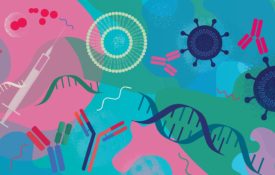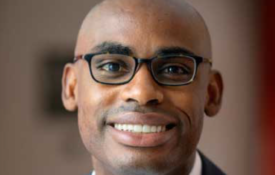-

New Research in Psychological Science
A sample of research on racial bias in police traffic stops, hypothesis testing, learning about the self, motivating growth by feeling discomfort, habits, stereotypes, and visual search. Visit Page
-

In New Letter, APS Encourages Psychological Science Participation in U.S. COVID-19 Response
In a new letter to the head of HHS, APS has encouraged the integration of psychological science in the agency’s response so that its ongoing efforts can be most effective. Visit Page
-
Why American Teens Are So Sad
The United States is experiencing an extreme teenage mental-health crisis. From 2009 to 2021, the share of American high-school students who say they feel “persistent feelings of sadness or hopelessness” rose from 26 percent to 44 percent, according to a new CDC study. This is the highest level of teenage sadness ever recorded. The government survey of almost 8,000 high-school students, which was conducted in the first six months of 2021, found a great deal of variation in mental health among different groups. More than one in four girls reported that they had seriously contemplated attempting suicide during the pandemic, which was twice the rate of boys.
-

2022 Spence Award Mini Episode: Neil Lewis Jr. on the Unequal Nature of Society
Neil Lewis Jr. discusses how despite living in the same country, people end up having wildly different life experiences. Visit Page
-
A Gentler, Better Way to Change Minds
What is the point of arguing with someone who disagrees with you? Presumably, you would like them to change their mind. But that’s easier said than done: Research shows that changing minds, especially changing beliefs that are tied strongly to people’s identity, is extremely difficult. As one scholar put it, this personal attachment to beliefs encourages “competitive personal contests rather than collaborative searches for the truth.” ...
-
It’s Not Just You: ‘Senior Moments’ Became More Widespread During the Pandemic
If you aren’t a senior, but still experiencing ‘senior moments,’ you are in good company, according to recent Wall Street Journal report. “Our brains are like computers with so many tabs open right now,” said Dr. Sara C. Mednick, a neuroscientist and professor of cognitive science at the University of California, Irvine. “This slows down our processing power, and memory is one of the areas that falters.” ‘Senior moments,’ otherwise known as fleeting bursts of forgetfulness, are becoming more commonplace, according to memory experts. ...


